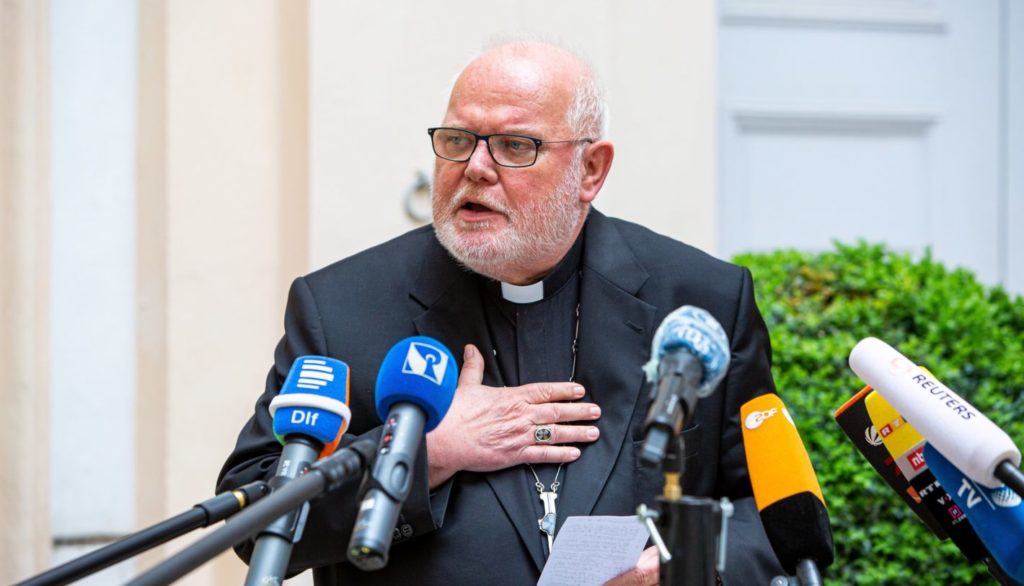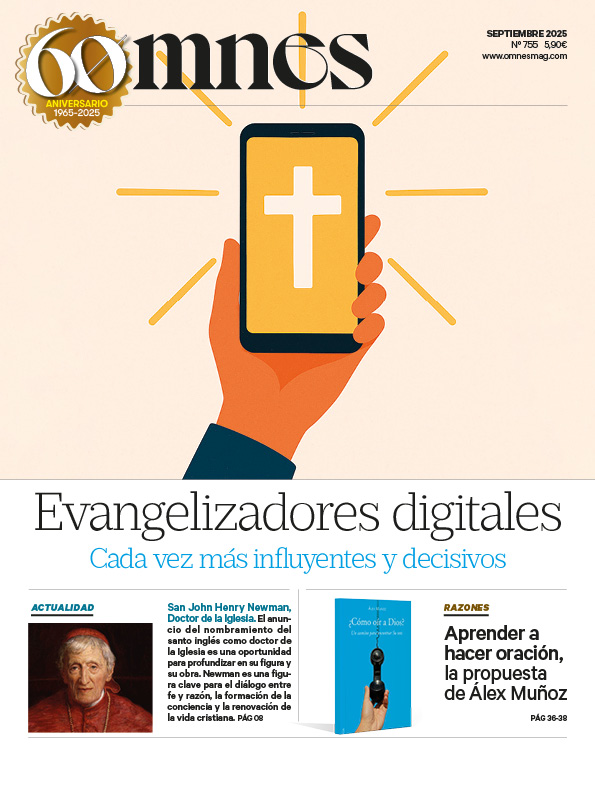The news "bombshell" exploded in Munich on Friday, June 5, with the publication of the letter of its archbishop, Cardinal Reinhard Marx, in which he asks Pope Francis to resign him from that position in the Church.
I have lost count of the number of times I have read and reread the letter, trying to understand the arguments presented by the archbishop to justify his unexpected decision. Why so many times? Because the letter is not only about resignation, but also about denouncing what is going wrong in the whole Church. By resigning, the cardinal thinks that his gesture will serve as an example. "for a new beginning of the Church and not only in Germany".
He also says that we find ourselves in the Church in "a stalemate"The Pope believes that the only way out of this impasse is to follow the "synodal path".
Both the diagnosis and the proposed therapy give and will give plenty of food for thought. Here I would just like to contribute an old text by Professor Joseph Ratzinger which, in my opinion, sheds light on the current problem, and not only in Germany.
In 1970, after the end of the Second Vatican Council in which he participated as an "expert" and as professor of dogmatics in Regensburg, Ratzinger broadcast five lectures on the radio that were published in Munich, precisely, with the title "Faith and Future". In the last of these he deals with this topic: "What will the Church look like in the year 2000?".
To answer the question, Professor Ratzinger turns to history, the teacher of life (nihil sub sole novum) and analyzes in depth some of the crises that the Church has suffered. Finally, he concludes with the text which I now transcribe in its entirety (underlining is mine):
This is what Ratzinger wrote in Faith and future:
"The future of the Church can and will only come, even today, from the strength of those who have deep roots and live from the pure fullness of their faith.. It will not come from those who only give prescriptions. It will not come from those who only accommodate themselves to the present moment. It will not come from those who criticize only others and accept themselves as the infallible norm.
Therefore it will not come either from those who choose only the most comfortable way, those who avoid the passion of faith, and consider as false and overcome, as tyranny and legality, everything that demands of man, that which hurts him, that which obliges him to renounce himself. Let us say it positively: the future of the church, also now, as always, is to be newly minted by the saints.
By men, therefore, who perceive something more than the phrases that are precisely modern. By men who can see more than others, because their life has greater flights. The detachment that frees men, is only achieved by the small daily renunciations to oneself. In this daily passion, by which alone man can experience in what manifold ways his own self binds him, in this daily passion and only in it, man opens himself up inch by inch.
Man only sees as much as he has lived and suffered.. If today we can hardly perceive God, it is because it is very easy for us to escape ourselves, to flee from the depths of our existence into the slumber of comfort.. Thus what is deepest in us remains unexplored. If it is true that one can only see well with the heart, how blind we all are!
[Let us go a step further. From today's Church will come out also this time a Church that has lost much. It will become small, it will have to start completely anew. It will no longer be able to fill many of the buildings constructed at the most propitious juncture. As the number of its followers diminishes, it will lose many of its privileges in society.. It will have to present itself, in a much more accentuated way than up to now, as a voluntary community, which can only be reached through a free decision. As a small community, it will need the initiative of its individual members to a much greater extent. It will also undoubtedly find new forms of ministry and will consecrate priests to proven Christians who remain in their profession: in many small communities, for example in homogeneous social groups, normal pastoral care will be carried out in this way. Alongside this, the priest, fully dedicated to the ministry as he has been until now, will continue to be indispensable.
But in all these changes that can be conjectured, the Church will have to find again and with all decision what is essential to her, what she has always been its centerFaith in the Trinitarian God, in Jesus Christ, the Son of God made man, the assistance of the Spirit that endures until the end of time.
You will find again its true core in faith and prayer and will experience again sacraments as divine worshipnot as a problem of liturgical structuring. It will be an internalized church, not claiming its political mandate and flirting as little with the left as with the right. It will be a difficult situation. Because this process of crystallization and clarification will cost it many valuable forces.
It will impoverish it, transform it into a church of the little ones.. The process will be all the more difficult because both narrow sectarian bias and boastful obstinacy will have to be suppressed. It can be predicted that all this will take time. The process will be long and arduous. [...] But after the ordeal of these tears, a great strength will emerge from an internalized and simplified Church.. For the men of a total and fully planned world will be unspeakably lonely. When God has completely disappeared for them, they will experience their total and horrible poverty. And then they will discover the small community of believers as something completely new.
Like a hope that comes their way, like an answer that they have always sought in the occult. So it seems certain to me that very difficult times are ahead for the Church. The real crisis has not yet begun. There are serious shocks to be reckoned with. But I am also completely sure that will remain until the endnot the Church of political worship, but the Church of faith. It will no longer be the dominant power in society to the extent that it has been until recently. But it will flourish again and will become visible to men as a homeland that gives them life and hope beyond death".
Bishop emeritus of Minas (Uruguay).







